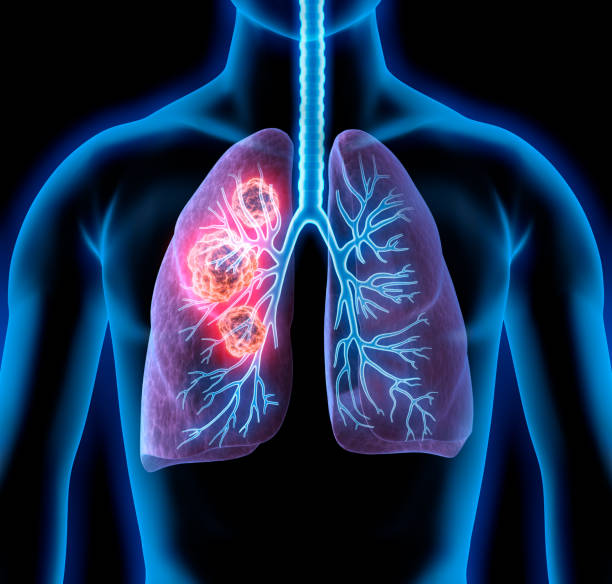Stoptober 2024: The Importance of Quitting Smoking
Did you know that people who stop smoking for 28 days are five times more likely to quit smoking for good?
This is the aim of Stoptober, an annual awareness campaign run in the UK. It was introduced in
2012 to
support and encourage smokers to put down their cigarettes for good. This number is higher than you might think – Action on Smoking and Health found that out of all the smokers in the UK,
nearly half of them wish they could quit! Campaigns such as Stoptober hope to give these people the confidence, tools, and determination to abandon cigarettes forever.
So, why is stopping smoking so important?
The Health Effects of Smoking
Smoking can have many effects on your body, both physical and mental. These negative health effects are caused by the harmful chemicals that cigarettes contain, including
tar and acetone. The effects of smoking include:
- Risk of a heart attack and stroke - Smoking causes fatty material to stick to the walls of your arteries6. If the arteries that supply blood to your heart get clogged, you could have a heart attack. Meanwhile, strokes can also occur if the arteries supplying blood to your brain get clogged.
- Risk of cancer - Smoking can increase your risk of cancer anywhere in your body. Many of the chemicals in cigarettes damage our DNA, including the cells that protect against cancer. When this cell damage builds up, it triggers cancer development. Smoking is the most significant cause of cancer in the UK, according to Cancer Research UK, causing 15% of all cases.
- Lung damage - Smoking causes damage to your lungs, including tissue loss. It can also weaken your lungs and impair their ability to fight off respiratory infections, such as pneumonia or tuberculosis, making you more likely to become seriously ill.
- Mental health issues - The nicotine found in cigarettes gives you a temporary high, which is why it is addictive. However, after the high wears off, you might experience tiredness and irritability, as well as feelings of anxiety and depression.
- Affected eyesight - Smoking for a long time can affect your optic nerve, impacting your overall eye health and vision. You may develop conditions such as glaucoma (where increased pressure in your eye causes nerve damage) or cataracts (which cause cloudy vision).
- Skin and nails - The substances found in cigarettes can damage your skin. Your skin may age prematurely, gaining wrinkles, and wounds might be slower to heal. The risk of developing fungal infections in your finger and toenails also increases.
- Reproductive system - Smoking can lower sex hormones and create fertility issues. Smoking can decrease vaginal lubrication, and cause earlier menopause. Smoking can also lead to erectile dysfunction by restricting blood flow in the body.
Did you know?
The number of people who smoke in the UK has been in decline since 1974, but about one in every eight people still smoke! That’s just under 13% of the UK population.
Benefits of quitting smoking
Smoking can have many adverse effects on both your body and mind. When you quit, your health will significantly improve.
- The long-term risks of heart disease, lung disease, and stroke are significantly reduced after quitting smoking. Within a year, your heart attack risk level will have halved compared to that of a smoker’s!
- Within 48-72 hours, your sense of smell and taste will begin to improve.
- Your skin will start to look brighter due to increased oxygen, and your teeth will appear whiter as you won’t be ingesting tar.
- Your energy will increase, and physical activity will feel easier due to better blood circulation.
- Your lungs will function better, reducing coughs or wheezing. It will also be easier to fight off infections like colds or flu.
- Packing up the cigarettes for good significantly reduces your risk of developing cancer, with a larger reduction in your risk level the earlier you stop. However, no matter when you stop, your risk will be lower. Research shows that individuals who quit after middle age have a 40% lower risk of lung cancer compared to people who continue smoking.
- Though the withdrawal stage is difficult, after this period, you will have reduced levels of anxiety, depression, and stress.
- You will stop transmitting second-hand smoke to the people around you.
- Your risk of serious health conditions such as diabetes will decrease
Did you know?
If you’re a frequent smoker, quitting can help you save vast amounts of money. An average smoker can save £38 a week – that’s just under £2000 a year!
Ways to quit smoking
Now that we’ve covered the reasons to stop smoking, how do you actually quit? It can feel like a huge step, but by deciding you want to stop, you’re already on the way! It’s important to remember not to be too hard on yourself and think as positively as you can. Even if you’ve struggled to quit in the past, don’t let it stop you from trying again.
Speak to a GP or medical professional
The best treatment option for you depends on your situation and preferences, so it’s
essential to speak to your GP before you leap into anything. You could also talk to an NHS Stop Smoking advisor by finding your nearest
Stop Smoking service on the NHS website. These professionals can advise you on the first steps towards a smoke-free life.
Nicotine replacement therapies
A professional may recommend nicotine replacement therapies to help you stop using cigarettes. These solutions give you the nicotine that your body is used to without the harmful chemicals in tobacco and are usually used for
8-12 weeks while you wean your body off cigarettes. There are multiple options, including:
- Nicotine patches – give you a slow release of nicotine through your skin and come in different strengths depending on how heavily you smoke.
- Nicotine sprays – nasal or mouth sprays deliver nicotine through the lining of your mouth, which is the quickest way for it to enter your bloodstream. They act very quickly.
- Nicotine gum and lozenges – come in different strengths and work by chewing or sucking, giving short bursts of nicotine through the lining of your mouth.
- Nicotine inhalers – deliver nicotine through the lining of your mouth and throat. They replicate the physical action of smoking and work faster than gum or lozenges.
- Nicotine tablets – dissolve under your tongue to give you nicotine through the lining of your mouth and throat.
- Nicotine vapes – e-cigarettes are one of the most popular and effective tools for quitting smoking. When vaping, you inhale nicotine in a vapour form that comes from a heated liquid, which is available in different strengths and flavours. Though vapes are not risk-free, they are less harmful than cigarettes.
Talk to Friends and Family
The slogan for the Stoptober campaign is
“Together we can do this”, emphasising the importance of social support in quitting smoking. Let the people you love know that you’re stopping smoking so that they can cheer you on! Tell them about any triggers that make you want to smoke so that they can
help you resist your cravings, and ask them to meet up if you’re feeling alone or having a dip in determination.
Keep Yourself Busy
Keeping your hands and mind busy can help you resist cravings. You could hold something in the hand that you usually hold cigarettes with, such as a glass of water or a fidget toy. Exercise may also be a helpful distraction – even just walking up and down some stairs, doing a few squats, or jogging on the spot can help you stop thinking about your urge to smoke.
Remember the Benefits
Remind yourself of the reasons why you want to stop smoking, considering how positively your mental health, physical health, financial health, and the health of those around you will be impacted. Find out what works for you when you need to use all your willpower to resist the urge to reach for a cigarette. For example, if it helps, you could look at a photo of your family or friends to remind you why stopping smoking is so important, listen to your favourite song for a burst of motivation, or have a cup of tea or glass of water instead to keep your mouth busy.
Places to get support
Sometimes, you might need some extra help when quitting smoking. These resources are in place to help you if you’re worried or struggling.
In Summary
Smoking puts both your mental and physical health at risk. However, although it might seem daunting at first, quitting is highly beneficial, no matter how long you’ve been smoking for. And it is possible to stop smoking for good, no matter how impossible it might feel in your most challenging moments.
Surround yourself with positive influences, professional advice, and support from people around you. Take this Stoptober as a chance to begin a smoke-free life and feel healthier and happier than ever. It might be challenging, but be kind to yourself and celebrate every milestone, no matter how small they feel!
Further reading
References





